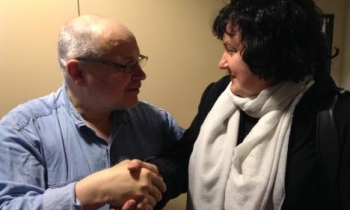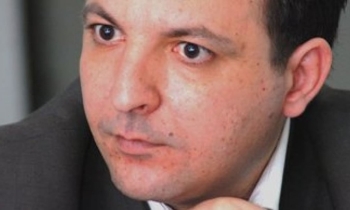Key board members of the World Editors Forum (WEF) have resigned their posts and re-grouped to form a new international network for editors from all mediums in response to the rapid acceleration of media convergence. The Global Editors Network (GEN), to be headed by former WEF president Xavier Vidal-Folch, deputy director of the Spanish daily newspaper El Pais, will be launched on March 23.
Both Vidal-Folch and former vice-president Harald Stanghelle, political editor of the Norway’s Aftenposten, will hold the same positions as they previously held in the newly-formed GEN. Vidal-Folch and Stanghelle resigned their posts from WEF on February 14. Roman Gallo, founder of the defunct hyperlocal newspaper project Naše Adresa in the Czech Republic, resigned the same day. WEF director Bertrand Pecquerie also stepped down this month.
GEN is a spin-off from the World Editors Forum. A majority of WEF board members who attended the last WEF Board meeting (8 on 14) decided to set up the new organisation. "Our goal is to gather editors from all platforms (print, broadcast, pure players) and to create an Editors’ Lab for new editorial services and new applications," a source told Newswatch.
Editors-in-chief and senior news executives from around the world and working on different platforms - print, digital or broadcast - will soon be able to gather, share information and create new services within this new professional network (GEN, www.globaleditorsnetwork.org).
"Because digitalisation and broadband access accelerate media convergence and because editors are facing the same challenges in the production of news, it is more obvious every day that they are members of the same community, all driven by a journalistic imperative and a common goal: how to invent tomorrow journalism and to make it sustainable," the source said.
According to Xavier Vidal-Folch, “quality journalism is at risk and we consider that the only solution to define a sustainable news model is to gather editors with a different knowledge and to start a dialog with engineers, developers and start-up managers. It is because we will break down traditional barriers that we will be innovative and relevant for our community”.
Founded by editors from both developed and emerging countries, the purpose of GEN is to empower colleagues looking for the preservation of editorial quality when working with publishers, media owners and news suppliers.
Apart from organising international and national conferences or events focused on editorial strategies, the new association is based on the concepts of mutualisation and cooperation between different media. For the president of GEN, “We are no longer competitors, but potential partners and if we manage to work together we'll be able to create new tools for our newsrooms. That’s the goal of the Global Editors Network.”
GEN will also foster the creation of national associations or guilds of editors-in-chief in countries that do not have these structures (association building activity), as for instance in the Arab world or in Asia. GEN will set up a range of new services for editors to be introduced very shortly: the Editors’ Lab, the Editors’ institute and the Editors’ marketplace.
Based in Paris, the Global Editors Network is a non-profit organization. Details of GEN activities will be released soon.
GEN board members want to share their vision of quality journalism with their colleagues. This is why they would like to offer them to improve the first draft of their manifesto (http://www.globaleditorsnetwork.org). This cooperative process is very symbolic of the relationship GEN would like to establish with its future members.
In its manifesto, the new organisation says that it seeks to:
- break the barriers between editors of old and new media, print and digital, general interest and specialized publications, free and paid business models, profit and non-profit organizations, international and local media outlets;
- understand the new news ecosystem based on immediacy, information overload and disintermediation: media are no longer middlemen and users blur the lines between production and consumption in a new world of prosumption;
- define a vision for the future of journalism, cross-media strategies, attention and audience analysis, newsroom management, dynamics of the news business and ethical values. Lack of vision is the worst that can happen to our community;
- welcome new players within the newsroom’s collective intelligence: engineers, developers, visual designers, apps-makers, community managers, curators, aggregators, researchers and other practitioners of the link economy who enrich our vision;
- enhance the quality of journalism in its different dimensions: newsgathering, news curation, storytelling, fact and data checking, designing, moderating and sharing, regardless of the platform, browser or application used;
- continue experimentation and innovation. We consider that mobility, users’ engagement, personalization, location-based news, data-driven journalism and rich media are key to the future of journalism;
- encourage mutualisation and cooperation between media. Among us, we are not competitors, but… potential partners. Resulting in the emergence of a new culture among senior news executives and new cross-offerings for consumers;
- convince media owners that slashes in editorial expenses are no longer a good answer for media outlets because – even for digital natives – content and engagement will make the difference, not only the technology;
- stop acting like victims of disruptive technologies or lack of citizenship. We are optimistic about the new digital tools and the new channels of distribution offered to us as news producers;
- reinforce the pillars of credibility of our profession based on context, accuracy, relevance, reliability, loyalty to the audience, effectiveness and connectedness, as citizens’ distrust is the main threat for our civil societies.
Prominent members:
- Xavier Vidal-Folch, El Pais, Spain; President (former WEF president);
- Harald Stanghelle, Aftenposten, Norway; Vice-President (former WEF vice-president);
- Alejandro Miro-Quesada, Cosas, Peru & Chile; Secretary (former WEF Board member);
- Roman Gallo, Gallomultimedia, Czech Republic; Treasurer (former WEF Board member).
- Pierre Bellanger, Skyrock, France
- David Cohn, spot.us, USA
- François Dufour, L’Actu, France (WEF Board member)
- Frédéric Filloux, MondayNote, France
- Steve Hermann, BBC News Interactive, UK
- Azubuike Ishiekwene, Leadership Newspapers, Nigeria (former WEF Board member)
- Jeff Jarvis, buzzmachine.com, USA
- Sylvie Kauffmann, Le Monde, France (with the approval of the ethical committee end of March)
- Ricardo Kirschbaum, Clarin, Argentina (former WEF Board member)
- Nadia Salah, L’Economiste, Morocco (WEF Board member)
- Martha Stone, World Newsmedia Research Group, USA
- Al Trivino, News International, UK









